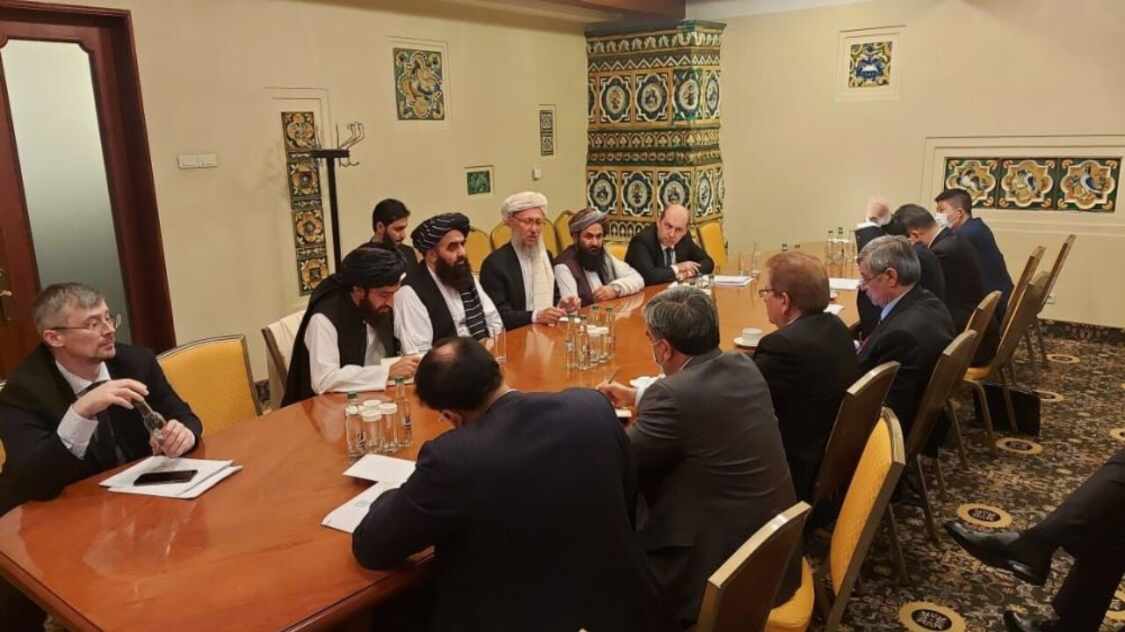Reaching out

In regards to its policy towards the 'Middle East', India has had a very busy week. On Wednesday, October 20, India participated in the 10 nation Moscow Format Dialogue with the Taliban. According to the Russian foreign ministry, the aim of the talks is to "discuss prospects for development of the military-political situation in Afghanistan and the formation of an inclusive government." This meeting comes at a time of considerable unrest in the region. The Taliban is seeking foreign legitimacy even as its credentials as a legitimate government remain in doubt. The people of Afghanistan are suffering from a scarcity of resources and a humanitarian crisis on a level that the country has not experienced in decades. And of course, there are the concerned neighbours that are seeing a buildup of undesirable terrorist elements in the region ranging from ISIS to Lashkar-e-Toiba. Clearly, something needs to be done about the impending crisis even if Uncle Sam decided to stay away from the whole affair, claiming 'technical reasons' for doing so. For India, Wednesday was also its second official opportunity to engage with the Taliban on the sidelines of the Moscow Dialogue, with the Indian side reportedly expressing its willingness to provide extensive humanitarian aid to the people of Afghanistan. India, which has previously been reluctant to engage with or in any way recognise the Taliban, is now shown to be willing to make some effort in its outreach to the new rulers of Afghanistan. There are a few obvious reasons for this. First is obviously security concerns with the Indian side expressing concern over the presence of anti-India groups like Jaish which it alleges are being supported by the Pakistani ISI. Second is a consideration for all of India's investments in the country over the last two decades. India has spent considerable time and resources on building up its reputation as a development partner for the country and would likely not appreciate Pakistan and even China waltzing in at the last moment and gaining the initiative. Because India likely is not seeing any concrete Middle East approach from the side of the US and the western powers, it is considering other alternatives in order to be able to exercise some control over the situation. But this Moscow Dialogue engagement was only a part of India's aforementioned busy week. This week, India also worked to update and further strengthen its ties to Israel but the more important engagement was on Monday evening. On that day, India was a part of the part-virtual, part-in-person summit between the foreign ministers of India, Israel, UAE and the US. What was put on the table was the prospect of a sort of 'Middle Eastern Quad'. While the stated agenda for the meeting was, on the surface, focused on economic and political cooperation, there was little ambiguity about the background agenda, that of countering Beijing and its allies moves in the Middle East. Just as concerns over the influence of China in the Indo-Pacific drove the formation of the first Quad, the second one is also expected to turn its focus on China's growing influence in the Middle East. Of course, countering China does not appear to be a primary concern for the group at the moment. For now, the idea is to build upon the Abraham Accords which started the process of reconciliation between Israel and the Arab world. Dialogue on religious co-existence and water and energy management issues is expected in the future. There is even some expectation that the group may be used to keep Iran and its nuclear ambitions in check. But for India, the idea is clear. This is an opportunity to expand its strategic horizons even further with yet another new partnership, this one affording the nation closer ties with old and new allies in the Gulf and the Middle East. Beyond the obvious economic and trade implications, there is a significant expected impact for India's security concerns in the region as well. Plus, regardless of whether China is part of the agenda or not, the presence of another US-led informal alliance in a region it is trying to expand into will surely keep Beijing nervous and on its toes, a definite plus point for India during its ongoing border tensions with the nation.



